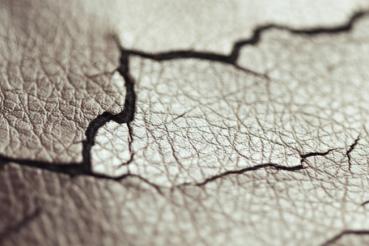What is your skin saying about you? Can you change your habits to have healthier and more youthful-looking skin?
It’s never too late to start caring for your skin. For healthier skin, follow these tips from Rush Copley Medical Group dermatologist Arjun Dayal, MD.
- Eat a healthy diet. Your diet is an important part of maintaining healthy skin. Dayal says the key is eating blueberries, strawberries, raspberries, kale, dark chocolate and other foods that contain high levels of antioxidants, avoiding sugar spikes that can damage the collagen that makes skin youthful, and avoiding processed foods that cause inflammation and can damage the collagen and elastic fibers in your skin. Drink plenty of water, too.
- Exercise. Exercise is good for your muscles, bones, joints and brain. It’s also good for your skin. When you exercise, blood flow increases throughout your body, delivering oxygen and nutrients to the skin, Dayal explains.
- Get enough rest. Your body repairs itself when you sleep. In fact, a recent study showed that healthy people who slept between seven and nine hours a night had healthier appearing and functioning skin. Make sure you get enough sleep to keep your body — and your skin — healthy.
- Don’t smoke. People who smoke often age prematurely, have uneven skin coloring and deeper wrinkles, Dayal says. That’s because cigarette smoke damages collagen, causing skin to become dry and less elastic. Smoking also increases your risk of skin cancer.
- De-stress. Stress triggers the release of hormones that break down collagen and elastin, aging your skin and leaving it looking dull. Stress also can cause your skin to produce more oil, resulting in breakouts and acne.
- Protect your skin from the sun. Dayal warns the sun’s rays will do more than tan your skin. Ultraviolet radiation from the sun can cause wrinkles, brown spots and skin cancer. Protect your skin with sunscreen and protective clothing all year long, he advises.
- Keep your skin clean. Keeping skin clean is important because it allows your skin to breathe. That’s why you should wash your face morning and night and remove makeup before bed. Dayal stresses the importance of proper cleaning: Use warm (not hot) water and limit the time you spend bathing or showering. Prolonged exposure to hot water can actually dehydrate the skin. Also, remember to apply a gentle moisturizing lotion or cream to help your skin stay hydrated.
- Moisturize. Moisturizers help restore the outermost layer of skin to its natural condition. Daily use of a moisturizer helps maintain your skin’s healthy cells and moisture barrier. It can also help prevent itching and rashes that result from excessively dry skin, especially as you grow older. Apply a moisturizer to your face and body.
- Avoid scented products if you have sensitive skin or eczema. If you have these conditions, you may notice fewer flare-ups if you avoid fragranced products. Look for fragrance-free soaps, moisturizers and laundry detergents.
- Visit your dermatologist regularly for a skin exam to help detect skin cancers. Early detection of skin cancer can save your life.




